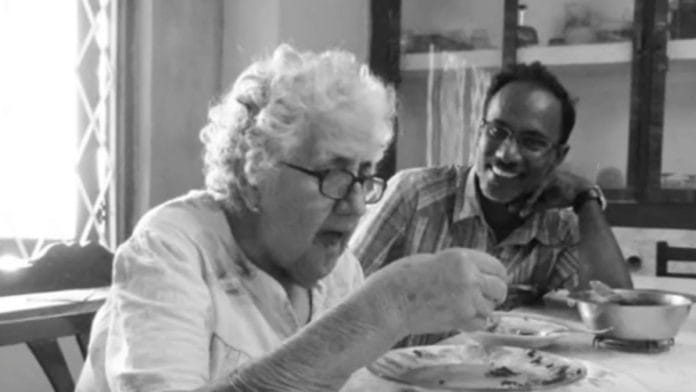New Delhi: Indians’ popular perception of relations between the Jewish community and Muslims is often shaped by the 26/11 attacks in 2008 and the ongoing Israel-Gaza conflict. Among the 160 people who lost their lives in the Mumbai attacks, six were Jews—who were brutally killed at the Chabad House. Yet, a recent film showcases how Jews and Muslims have coexisted, thrived, and shared a “syncretic relationship” through diplomacy, art and even Bollywood.
Memorial for Chabad House victims of 26/11 & History of enduring Indian Muslim-Jewish Friendship is an initiative of the Shal-Om Initiative, an organisation directed towards strengthening ties between India and Israel.
A crew member of the memorial film who did not wish to be named said, “There seems to be an international scandal where emotions are running high and the rhetoric is dangerous…Nowhere in the world are the Chinese or Russians being attacked…What does this mean for the safety of Jews?”
Also read: Why are Indians indifferent to Palestinians’ plight? No, it’s not about Jews vs Muslims
Condemning the Jihadi narrative
The crew member quoted above said that narrators of the film journalists Omer Ghazi and Moinuddin Ahmad, columnist Amana Begam and others wanted to “raise awareness” about what happened during 26/11 to Jews. “What happened to these Jews is not representative of how Indian Muslims have been with Jews. That is their message,” said the crew member.
The film traces the history of Jewish migration to India, while also telling stories of Indian Muslims like tombstone engraver Mohammed Abdul Yaseen who is preserving Jewish heritage by engraving Hebrew tombstones and taking care of Jewish synagogues and cemeteries.
Indian Muslims are taking care of Jewish cemeteries, reviving Hebrew, she said. The film gives the example of Khurshid Imam, India’s only teacher of Hebrew. “Indians and Indian Muslims are definitely taking a stand against the Jihadist motivation, which is not an Indian thing,” said the crew member.
On the role of cinema, art and history in dispelling the misconception against Muslims, the crew member said, “History and cinema can do so much to raise awareness. Nobody knows that during the Nazi times in the 1930s and 1940s, Jews got asylum in India.”
She expressed the need for narratives that showcase how close the Jewish community and Indian Muslims have actually been. “Social media is loud, but also reaches the widest audience.”
Also read: Peace between Jews and Muslims is only possible in Hindu-majority India
An unwavering friendship
The nature of Indian people has historically nurtured a friendship between the Indian Muslims and the Jews.
“As people, we are open and curious about one another, and have been willing to share and borrow ideas while also celebrating each other,” said the crew member.
Pioneers of Indian art such as Maqbool Fida Hussain and Sayed Haider Raza came from poor economic backgrounds. But they were able to carve their place in the Indian art scene “because of the Jewish patronage” of Kathe Langhammer, Emanuel Schlesinger and Rudolf Leyden, who financially supported them. It was “dialogue and the syncretic nature of the existing Indian identity” that made this possible.
The 22-minute documentary also showcases several examples of cordial diplomatic ties among Indian Muslims and Jews. For example, Garcia de Orta, a Portuguese Jew and herbalist, studied various economic and medical plants of India and went on to set up his medical practice in erstwhile Ahmednagar, Maharastra. He was a physician to Burhan Nizam Shah—1st of the Nizam Shahi dynasty—and was treated like a member of the aristocracy.
Mughal emperors Akbar and Jahangir also welcomed Jewish advisors to their court, such as the Ibadad-Khana. Jews also participated in Akbar’s parliament of religion, said Subuhi Khan, a Delhi-based lawyer and activist, in the film.
Some iconic Bollywood films about the Muslim community such as Noor Jehan (1967) and Anarkali (1953) starred Jewish actors like Vimala Vasishta, Ezra Mir and Sulochana, indicating a real amiable relationship even on the screen. Similarly, Muslim writers such as Wajahat Hussain Mirza Changezi depicted the Roman persecution of Jews in his film Yahudi, indicating a cultural sensitivity towards the plight of the Jews.
(Edited by Theres Sudeep)







History stands testimony to the fact that Muslims have exploited, oppressed and, more often than not, brutalized the Jewish people. Right since the birth of Islam, it has been targeting the Jews. The hatred and contempt for Jews is so visceral that it has to be seen, heard or witnessed to be believed.